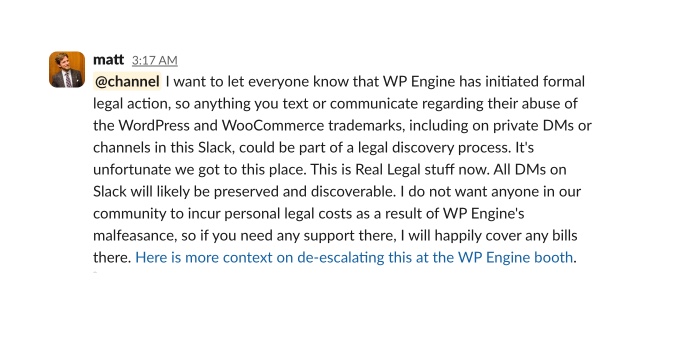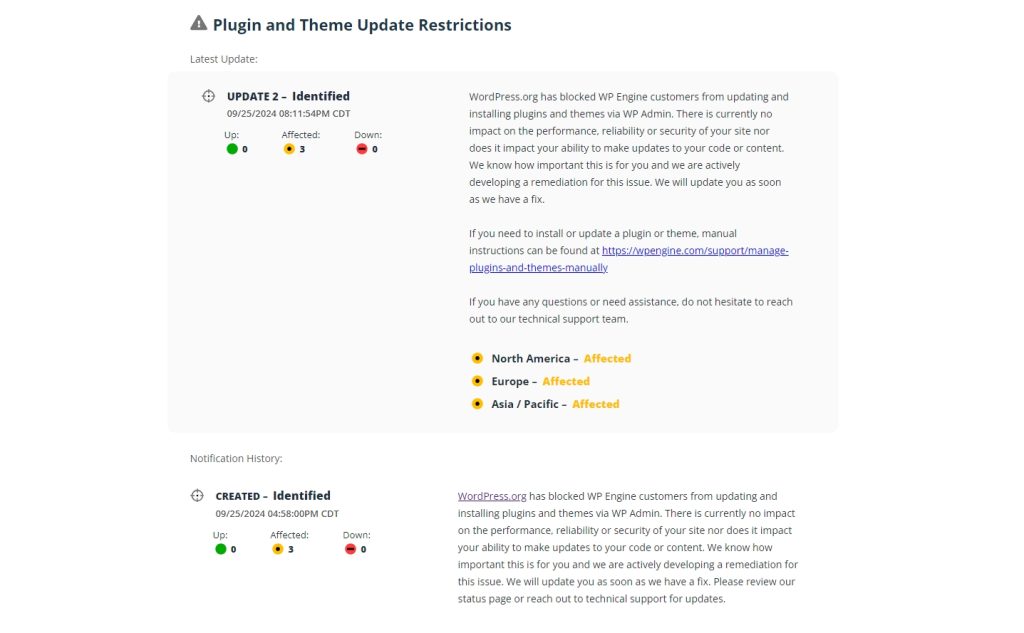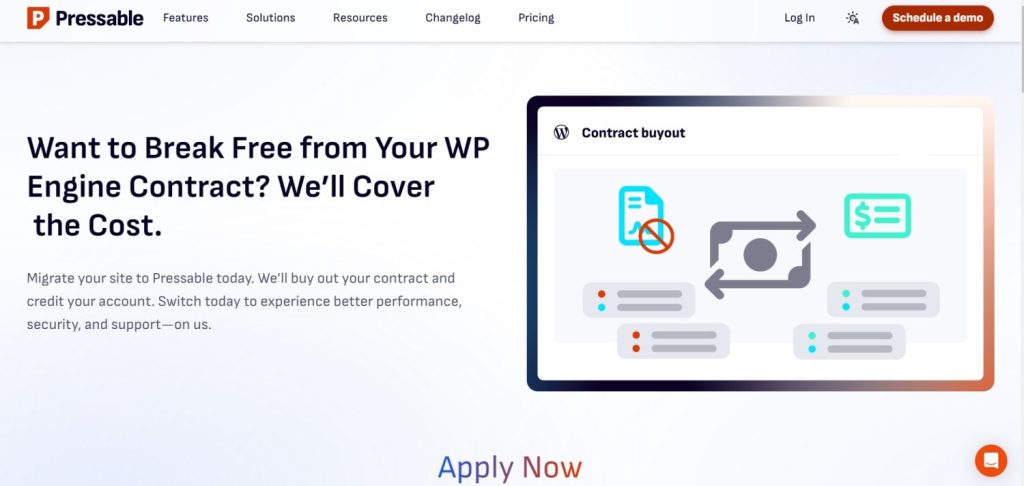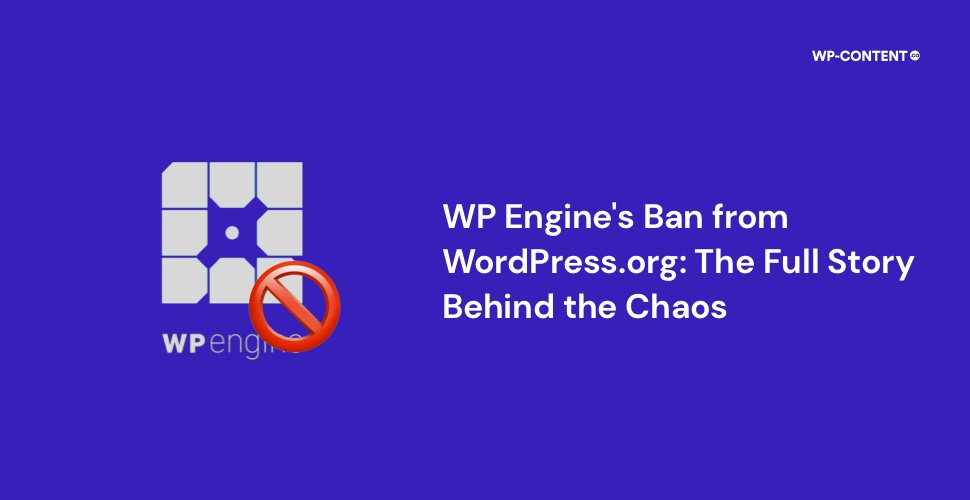In the wake of the drama that unfolded at WCUS 2024, a string of events have echoed through the WordPress community. The latest development in this ongoing situation is that WP Engine has been banned from WordPress.org.
How it all started
The recent keynote at WCUS2024 delivered by Matt Mulleng criticized WP Engine and their lack of contribution to the WordPress project and a whole lot more. In the presentation, he compares how much Automattic and WP Engine contribute to the WordPress project, with the former contributing 3,786 hours a week (which has gone up now) compared to the 47 hours from WP Engine, which has now come down to 40 hrs.
Following the keynote, WP Engine on the same day highlighted their decade of contribution to the WordPress community, such as their sponsorships, and organizing educational events such as DE{CODE}, educating and empowering the WordPress community through content like the WordPress Roundup and our Building WordPress series and so on.
The aftermath: A series of events
Shortly, Matt initiated a poll on X, asking the community if WP Engine should be allowed to have a booth at the next WordCamp if they don’t change. The results were in favor of WP Engine.
He then subsequently published WP Engine is not WordPress, in which he emphasized, “ Their branding, marketing, advertising, and entire promise to customers is that they’re giving you WordPress, but they’re not. And they’re profiting off of the confusion.” He also pointed out how WP Engine is the only WordPress host that turns off revisions by default, “WP Engine turns this off. They disable revisions because it costs them more money to store the history of the changes in the database, and they don’t want to spend that to protect your content.”
He pressed on and said, “ This is one of the many reasons they are a cancer to WordPress, and it’s important to remember that unchecked, cancer will spread. WP Engine is setting a poor standard that others may look at and think is ok to replicate. We must set a higher standard to ensure WordPress is here for the next 100 years.”
The “cease and desist” battle
WP Engine sent a “cease and desist” letter to Automattic demanding that Automattic and its CEO Matt Mullenweg stop making and retract false, harmful, and disparaging statements against WP Engine.
Following this “cease and desist” letter Matt took to Slack and stated:

Later, Automattic also issued a cease and desist letter to WP Engine stating, “ WP Engine’s pattern of unauthorized usage of the WordPress and WooCommerce trademarks and demanding that WP Engine stop such behavior.”
WP Engine fiddles with the news widget
It came to several users’ attention as well as Matt’s, that WP Engine is modifying the WordPress dashboard’s news widget.
Max, a community member responded to Matt’s tweet as seen below.
Shivak and Amit Bajracharya also joined in on the discussion.
WP Engine banned from using WordPress.org resources
All this has cumulated in the recent development where WP Engine has been banned from using WordPress.org resources, “ Pending their legal claims and litigation against WordPress.org, WP Engine no longer has free access to WordPress.org’s resources. WP Engine wants to control your WordPress experience, they need to run their own user login system, update servers, plugin directory, theme directory, pattern directory, block directory, translations, photo directory, job board, meetups, conferences, bug tracker, forums, Slack, Ping-o-matic, and showcase. Their servers can no longer access our servers for free.”
Advancing, the post goes on to say, “ Why should WordPress.org provide these services to WP Engine for free, given their attacks on us? WP Engine is free to offer their hacked up, bastardized simulacra of WordPress’s GPL code to their customers, and they can experience WordPress as WP Engine envisions it, with them getting all of the profits and providing all of the services.”
It is to be noted that Flywheel which was acquired by WP Engine in 2019 is also affected as highlighted by Oliver Sild and sadsciencee on X.
WP Engine’s status page also alerts users of the plugin and theme update restrictions as a result of this ban.

It also notifies the users that, “There is currently no impact on the performance, reliability or security of your site nor does it impact your ability to make updates to your code or content.”
Amidst this, Pressable owned by Automattic released a new landing page.

The community response to the ban and Pressable
Several community members voiced their opinion about banning WP Engine from accessing WordPress.org’s resources.
Jacob Martella, creator of Crosswinds Framework tweeted as follows.
Brian Gardner also notified users of the ongoing issue with plugin and theme updates for WP Engine users.
Dave Amirault was also frustrated with this recent development.
Patchstack also issued a PSA on X.
Angela Bowman offers a solution for WP Engine users who still want to update or install plugins.
Several members also started expressing their views regarding the new landing page at Pressable.
Nick Cesarz’s expressed his view that the new landing page is to poach WP Engine customers.
Dave Foy also tweeted and reminded Pressable is owned by Automattic.
Matt sheds more light on the issue
In a recent post on his personal domain, he dives deeper into the core issue at hand, offering a bit more insight, “ WP Engine is violating WordPress’ trademarks. Moreover, they have been doing so for years. We at Automattic have been attempting to make a licensing deal with them for a very long time, and all they have done has string us along.”
As per the post, WP Engine was offered how to sort this out, “ We offered WP Engine the option of how to pay their fair share: either pay a direct licensing fee, or make in-kind contributions to the open source project. This isn’t a money grab: it’s an expectation that any business making hundreds of millions of dollars off of an open source project ought to give back, and if they don’t, then they can’t use its trademarks. WP Engine has refused to do either, and has instead taken to casting aspersions on my attempt to make a fair deal with them.”
He concludes by saying that,” If WP Engine wants to find another open source project with a more permissive license and no trademarks, they are free to do so; if they want to benefit from the WordPress community, then they need to respect WordPress trademark and IP.”




